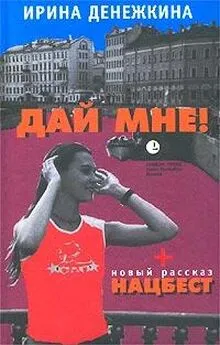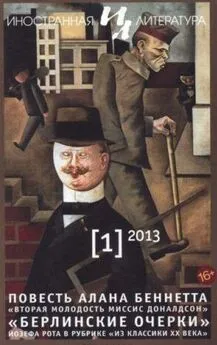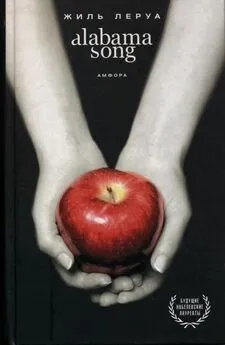Toni Morrison - Song of Solomon
- Название:Song of Solomon
- Автор:
- Жанр:
- Издательство:неизвестно
- Год:неизвестен
- ISBN:нет данных
- Рейтинг:
- Избранное:Добавить в избранное
-
Отзывы:
-
Ваша оценка:
Toni Morrison - Song of Solomon краткое содержание
Song of Solomon - читать онлайн бесплатно полную версию (весь текст целиком)
Интервал:
Закладка:
“I thought he left town.”
“Wouldn’t you?”
“Well, I know I don’t want to truck with her. Not me.”
“She don’t bother nobody but him.”
“Well, Pilate, then. Pilate know I turned her down, she wouldn’t like it. They spoil that child something awful.”
“Didn’t you order fish from next door?”
“All that hair. I hope she don’t expect nothing fancy.”
“Call him up again. I’m getting hungry.”
“Be just like her. No appointment. No nothing. Come in here all late and wrong and want something fancy.”
She probably meant to wait somewhere. Or go home and return to Lilly’s at eight-thirty. Yet the momentum of the thing held her—it was all of a piece. From the moment she looked into the mirror in the little pink compact she could not stop. It was as though she held her breath and could not let it go until the energy and busyness culminated in a beauty that would dazzle him. That was why, when she left Lilly’s, she looked neither right nor left but walked on and on, oblivious of other people, street lights, automobiles, and a thunderous sky. She was thoroughly soaked before she realized it was raining and then only because one of the shopping bags split. When she looked down, her Evan-Picone white-with-a-band-of-color skirt was lying in a neat half fold on the shoulder of the road, and she was far far from home. She put down both bags, picked the skirt up and brushed away the crumbs of gravel that stuck to it. Quickly she refolded it, but when she tried to tuck it back into the shopping bag, the bag collapsed altogether. Rain soaked her hair and poured down her neck as she stooped to repair the damage. She pulled out the box of Con Brios, a smaller package of Van Raalte gloves, and another containing her fawn-trimmed-in-sea-foam shortie nightgown. These she stuffed into the other bag. Retracing her steps, she found herself unable to carry the heavier bag in one hand, so she hoisted it up to her stomach and hugged it with both arms. She had gone hardly ten yards when the bottom fell out of it. Hagar tripped on Jungle Red (Sculptura) and Youth Blend, and to her great dismay, saw her box of Sunny Glow toppling into a puddle. She collected Jungle Red and Youth Blend safely, but Sunny Glow, which had tipped completely over and lost its protective disk, exploded in light peach puffs under the weight of the raindrops. Hagar scraped up as much of it as she could and pressed the wilted cellophane disk back into the box.
Twice before she got to Darling Street she had to stop to retrieve her purchases from the ground. Finally she stood in Pilate’s doorway, limp, wet, and confused, clutching her bundles in whatever way she could. Reba was so relieved to see her that she grabbed her, knocking Chantilly and Bandit to the floor. Hagar stiffened and pulled away from her mother.
“I have to hurry,” she whispered. “I have to hurry.”
Loafers sluicing, hair dripping, holding her purchases in her arms, she made it into the bedroom and shut the door. Pilate and Reba made no move to follow her.
Hagar stripped herself naked there, and without taking time to dry her face or hair or feet, she dressed herself up in the white-with-a-band-of-color skirt and matching bolero, the Maiden-form brassiere, the Fruit of the Loom panties, the no color hose, the Playtex garter belt and the Joyce con brios. Then she sat down to attend to her face. She drew charcoal gray for the young round eye through her brows, after which she rubbed mango tango on her cheeks. Then she patted sunny glow all over her face. Mango tango disappeared under it and she had to put it on again. She pushed out her lips and spread jungle red over them. She put baby clear sky light to outwit the day light on her eyelids and touched bandit to her throat, earlobes, and wrists. Finally she poured a little youth blend into her palm and smoothed it over her face.
At last she opened the door and presented herself to Pilate and Reba. And it was in their eyes that she saw what she had not seen before in the mirror: the wet ripped hose, the soiled white dress, the sticky, lumpy face powder, the streaked rouge, and the wild wet shoals of hair. All this she saw in their eyes, and the sight filled her own with water warmer and much older than the rain. Water that lasted for hours, until the fever came, and then it stopped. The fever dried her eyes up as well as her mouth.
She lay in her little Goldilocks’-choice bed, her eyes sand dry and as quiet as glass. Pilate and Reba, seated beside the bed, bent over her like two divi-divi trees beaten forward by a wind always blowing from the same direction. Like the trees, they offered her all they had: love murmurs and a protective shade.
“Mama.” Hagar floated up into an even higher fever.
“Hmmm?”
“Why don’t he like my hair?”
“Who, baby? Who don’t like your hair?”
“Milkman.”
“Milkman does too like your hair,” said Reba.
“No. He don’t. But I can’t figure out why. Why he never liked my hair.”
“Of course he likes it. How can he not like it?” asked Pilate.
“He likes silky hair.” Hagar was murmuring so low they had to bend down to hear her.
“Silky hair? Milkman?”
“He don’t like hair like mine.”
“Hush, Hagar.”
“Silky hair the color of a penny.”
“Don’t talk, baby.”
“Curly, wavy, silky hair. He don’t like mine.”
Pilate put her hand on Hagar’s head and trailed her fingers through her granddaughter’s soft damp wool. “How can he not love your hair? It’s the same hair that grows out of his own armpits. The same hair that crawls up out his crotch on up his stomach. All over his chest. The very same. It grows out of his nose, over his lips, and if he ever lost his razor it would grow all over his face. It’s all over his head, Hagar. It’s his hair too. He got to love it.”
“He don’t love it at all. He hates it.”
“No he don’t. He don’t know what he loves, but he’ll come around, honey, one of these days. How can he love himself and hate your hair?”
“He loves silky hair.”
“Hush, Hagar.”
“Penny-colored hair.”
“Please, honey.”
“And lemon-colored skin.”
“Shhh.”
“And gray-blue eyes.”
“Hush now, hush.”
“And thin nose.”
“Hush, girl, hush.”
“He’s never going to like my hair.”
“Hush. Hush. Hush, girl, hush.”
The neighbors took up a collection because Pilate and Reba had spent everything getting Hagar the things needed to fix herself up. It didn’t amount to much, though, and it was touch and go whether she’d have a decent funeral until Ruth walked down to Sonny’s Shop and stared at Macon without blinking. He reached into his cash drawer and pulled out two twenty-dollar bills and put them down on the desk. Ruth didn’t stretch out her hand to pick them up, or even shift her feet. Macon hesitated, then wheeled around in his chair and began fiddling with the combination to his safe. Ruth waited. Macon dipped into the safe three separate times before Ruth unclasped her hands and reached for the money. “Thank you,” she said, and marched off to Linden Chapel Funeral Home to make the fastest arrangements possible.
Two days later, halfway through the service, it seemed as though Ruth was going to be the lone member of the bereaved family there. A female quartet from Linden Baptist Church had already sung “Abide with Me”; the wife of the mortician had read the condolence cards and the minister had launched into his “Naked came ye into this life and naked shall ye depart” sermon, which he had always believed suitable for the death of a young woman; and the winos in the vestibule who came to pay their respects to “Pilate’s girl,” but who dared not enter, had begun to sob, when the door swung open and Pilate burst in, shouting, “Mercy!” as though it were a command. A young man stood up and moved toward her. She flung out her right arm and almost knocked him down. “I want mercy!” she shouted, and began walking toward the coffin, shaking her head from side to side as though somebody had asked her a question and her answer was no.
Halfway up the aisle she stopped, lifted a finger, and pointed. Then slowly, although her breathing was fast and shallow, she lowered her hand to her side. It was strange, the languorous, limp hand coming to rest at her side while her breathing was coming so quick and fast. “Mercy,” she said again, but she whispered it now. The mortician scurried toward her and touched her elbow. She moved away from him and went right up to the bier. She tilted her head and looked down. Her earring grazed her shoulder. Out of the total blackness of her clothes it blazed like a star. The mortician tried to approach her again, and moved closer, but when he saw her inky, berry-black lips, her cloudy, rainy eyes, the wonderful brass box hanging from her ear, he stepped back and looked at the floor.
“Mercy?” Now she was asking a question. “Mercy?”
It was not enough. The word needed a bottom, a frame. She straightened up, held her head high, and transformed the plea into a note. In a clear bluebell voice she sang it out—the one word held so long it became a sentence—and before the last syllable had died in the corners of the room, she was answered in a sweet soprano: “I hear you.”
The people turned around. Reba had entered and was singing too. Pilate neither acknowledged her entrance nor missed a beat. She simply repeated the word “Mercy,” and Reba replied. The daughter standing at the back of the chapel, the mother up front, they sang.
In the nighttime.
Mercy.
In the darkness.
Mercy.
In the morning.
Mercy.
At my bedside.
Mercy.
On my knees now.
Mercy. Mercy. Mercy. Mercy.
They stopped at the same time in a high silence. Pilate reached out her hand and placed three fingers on the edge of the coffin. Now she addressed her words to the woman bordered in gray satin who lay before her. Softly, privately, she sang to Hagar the very same reassurance she had promised her when she was a little girl.
Who’s been botherin my sweet sugar lumpkin?
Who’s been botherin my baby?
Who’s been botherin my sweet sugar lumpkin?
Who’s been botherin my baby girl?
Somebody’s been botherin my sweet sugar lumpkin.
Somebody’s been botherin my baby.
Somebody’s been botherin my sweet sugar lumpkin.
Some body’s been botherin my baby girl.
I’ll find who’s botherin my sweet sugar lumpkin.
I’ll find who’s botherin my baby.
I’ll find who’s botherin my sweet sugar lumpkin.
I’ll find who’s botherin my baby girl.
“My baby girl.” The three words were still pumping in her throat as she turned away from the coffin. Looking about at the faces of the people seated in the pews, she fastened on the first pair of eyes that were directed toward her. She nodded at the face and said, “My baby girl.” She looked for another pair of eyes and told him also, “My baby girl.” Moving back down the aisle, she told each face turned toward her the same piece of news. “My baby girl. That’s my baby girl. My baby girl. My baby girl. My baby girl.”
Conversationally she spoke, identifying Hagar, selecting her away from everybody else in the world who had died. First she spoke to the ones who had the courage to look at her, shake their heads, and say, “Amen.” Then she spoke to those whose nerve failed them, whose glance would climb no higher than the long black fingers at her side. Toward them especially she leaned a little, telling in three words the full story of the stumped life in the coffin behind her. “My baby girl.” Words tossed like stones into a silent canyon.
Читать дальшеИнтервал:
Закладка:








